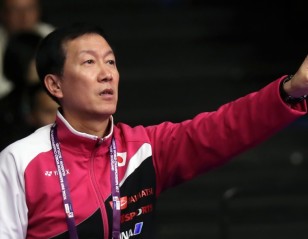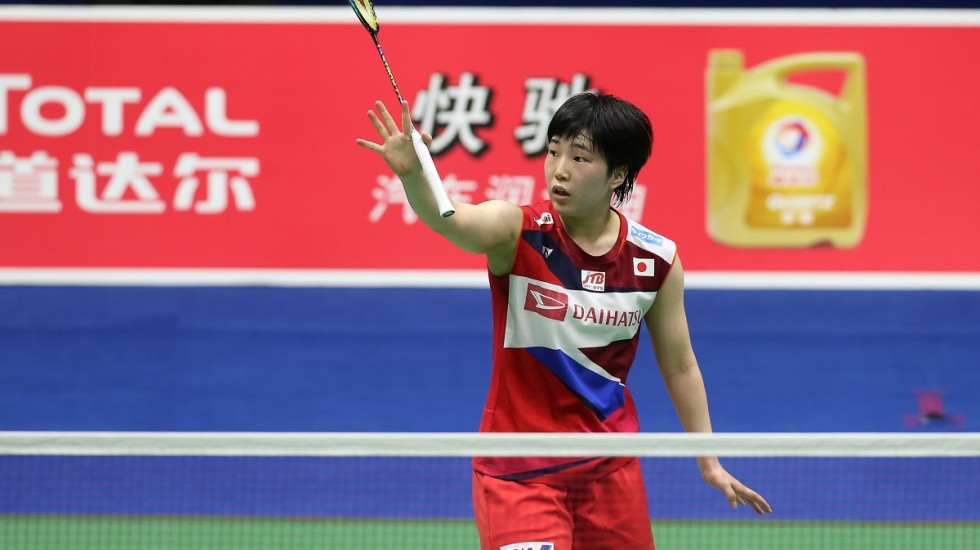
Key Moments: Chen vs. Yamaguchi – Sudirman Cup ‘19
The women’s singles showdown between the former world junior champions Chen Yufei and Akane Yamaguchi was always going to a decisive match in determining the overall tie.
The two had met just three weeks earlier in the semifinal of the Asia Championships. Not much split the pair as Yamaguchi came from one game down to win 15-21 21-16 21-17.
The scoreline was eerily similar in Nanning, only this time it was Chen who came from behind.
Heading into the contest, Yamaguchi led the head-to-head 9-5. The last three, however, had gone to three games with Chen winning two of them – at the Japan and China Opens last year.
It was also a meeting of the two in-form players of the season. In eight tournaments prior to the TOTAL BWF Sudirman Cup 2019, Yamaguchi had two titles, one runner-up finish, and three semifinals. For Chen, it was two titles and three semifinals.
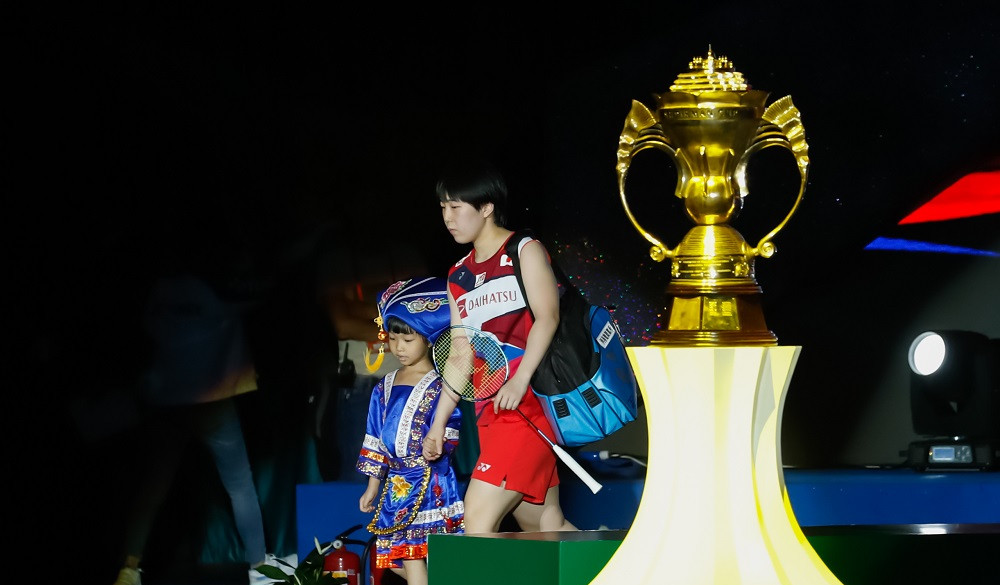
Chen had slightly the tougher week in Nanning, playing in three singles matches leading into the final (Soniia Cheah, Saina Nehwal, Mia Blichfeldt). The fact she was not required against Ratchanok Intanon in the semi against Thailand was perhaps a blessing.
Yamaguchi, by comparison, was rusty in her opening singles loss to Pornpawee Chochuwong 21-9 14-21 20-22, but then consolidated with an emphatic 21-13 21-13 win over Gregoria Mariska Tunjung.
It did, however, only give her 24 hours to recover before the crucial clash with Chen.
The final was a seesawing battle across 81 minutes with both players holding the ascendency at different stages of the match and then relinquishing it under pressure.
BWF commentator Morten Frost noticed while on air that Yamaguchi was at times extremely “erratic” and would often “go into her shell” at various stages.
The evidence was in the scoreline as Yamaguchi led 10-6 in the first game before conceding eight consecutive points to hand Chen the lead at 14-10.
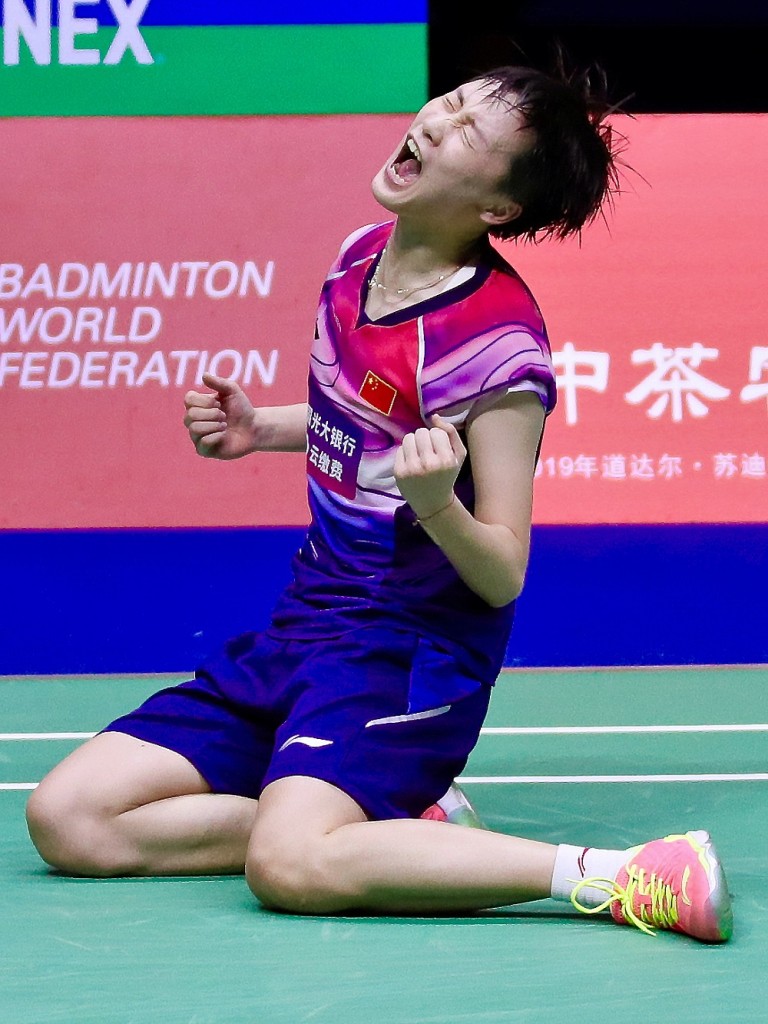
Yamaguchi squared it at 15-15 only for herself to reel off six straight points to take the first game 21-17.
The second game followed a similar path but this time it was Chen who got the wobbles. She led 5-1 and 7-2 only to allow Yamaguchi back in it to trail 9-10. But the unforced errors continued from Yamaguchi’s racket and the less-experienced Chen was finally able to capitalise to open up a 16-11 lead.
Frost had before the match predicted that Yamaguchi’s greater experience in these pressurised ties would serve her better, but it was, in fact, Chen who raised her play and was able to close out the second game 21-16.
The twists and turns did not stop there.
This time Chen was slow out of the blocks and trailed 11-6 but a key exchange with coach Xia Xuanze at the mid-game break saw her return a new player and she subsequently won six straight points and nine out of the next 11 to go up 15-13.
Post-match she said: “I felt I played a bit slow at the beginning of the third game which caused me to waste a lot of energy. I couldn’t keep up with her but at the break I changed my game strategy and I took the lead.”
Yamaguchi continued to fight but with the home crowd on her side, Chen pulled away to record a famous victory.
Japan coach Park Joo Bong acknowledged later: “Yamaguchi was leading 11-6 in the third game but she could not continue her good rhythm. That was a very big mistake.”
Yamaguchi herself said: “I fell into playing at Chen’s pace and not my own pace and rhythm and that’s why I lost the advantage.”
The loss would give her countryman Kento Momota a mountain too high to climb.
There’s no doubting the Chen-Yamaguchi rivalry will last for many years to come. It currently stands at 9-6 in favour of the Japanese, but you can’t help to think that Chen is slowly getting the upper hand.
Sudirman Cup News
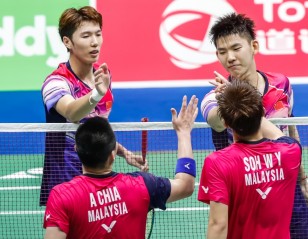
Sudirman Cup: The Most Thrilling Battles 5 June 2019
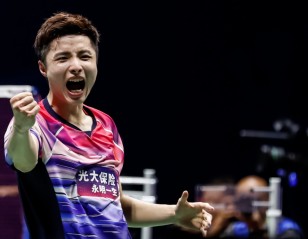
Stars Who Shone; Those Who Didn’t 4 June 2019
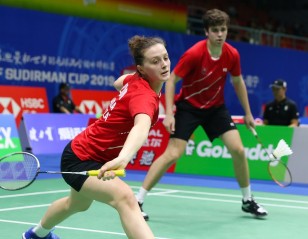
Slovakia Daring to Dream – Sudirman Cup ’19 28 May 2019
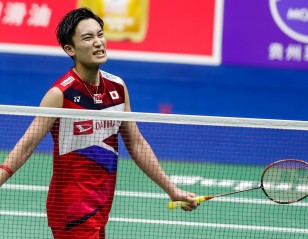
Key Moments: Shi vs. Momota – Sudirman Cup ‘19 28 May 2019
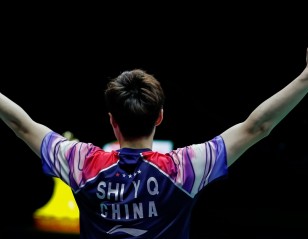
As It Happened CHN vs JPN – Sudirman Cup ‘19 27 May 2019
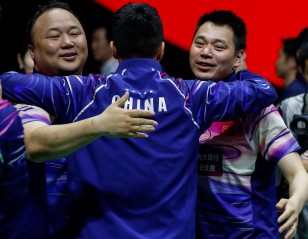
Celebrations and Concessions – Sudirman Cup ’19 26 May 2019
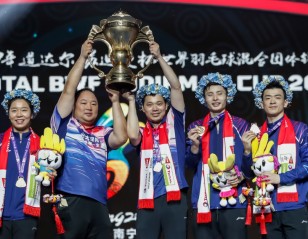
China’s Young Heroes Reclaim Title – Sudirman Cup ’19 26 May 2019
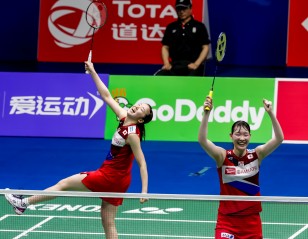
Park: We’re Going All Out! – Sudirman Cup ’19 25 May 2019
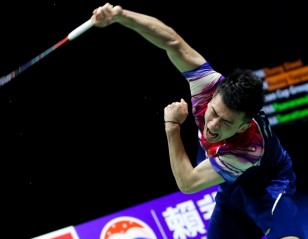
Big Guns Boom for China – Sudirman Cup ’19 25 May 2019
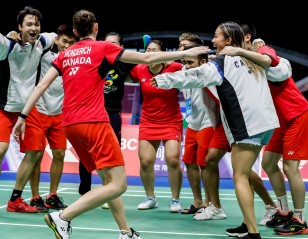
Brilliant Canada Top Group 2 – Sudirman Cup ‘19 25 May 2019
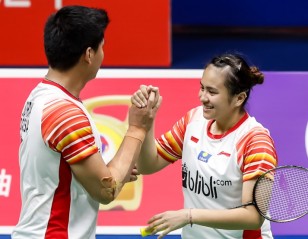
Indonesia Hobble Past Chinese Taipei – Sudirman Cup ’19 24 May 2019
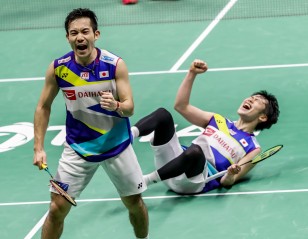
Japan Stay on Track – Sudirman Cup ’19 24 May 2019
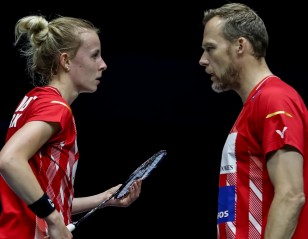
Jonassen: Young Generation ‘Hungry’ – Sudirman Cup ’19 24 May 2019
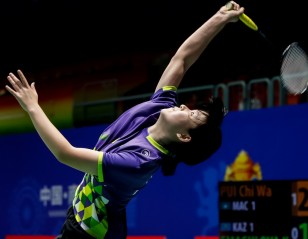
Another Teen Star in the Making – Sudirman Cup ’19 24 May 2019
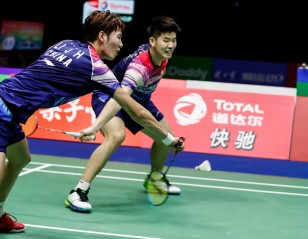
China Coast into Semis – Sudirman Cup ’19 23 May 2019
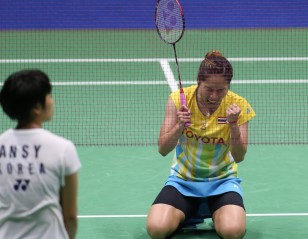
Defending Champs Trip Over Thailand – Sudirman Cup ’19 23 May 2019
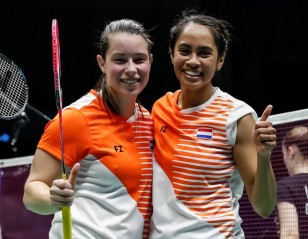
Netherlands Fight Back From Brink – Sudirman Cup ‘19 23 May 2019
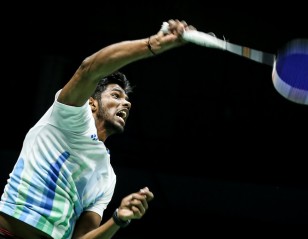
Rankireddy Impressive in Comeback from Fracture 23 May 2019
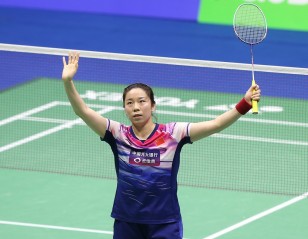
Final Eight Draw – Sudirman Cup ’19 23 May 2019
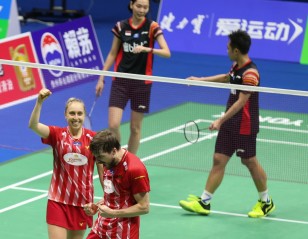
Danes Deliver! – Sudirman Cup ’19 22 May 2019
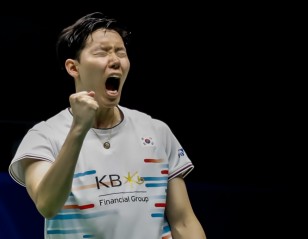
Korea Beat Chinese Taipei, Top Group – Sudirman Cup ’19 22 May 2019
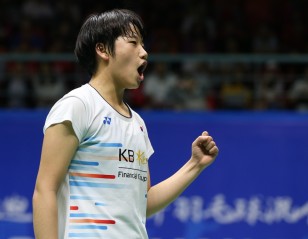
No Stopping An Se Young! – Sudirman Cup ’19 22 May 2019
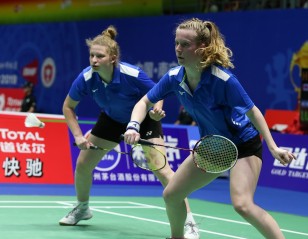
Israeli Youngster Embracing the Big Stage – Sudirman Cup ’19 22 May 2019
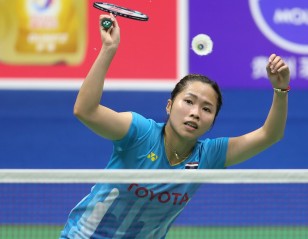
Thailand Thwart Russia – Sudirman Cup ’19 21 May 2019
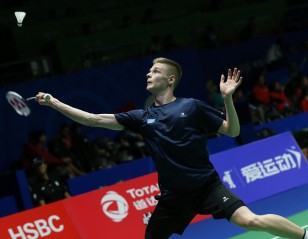
Pathway to Success for Kazakhstan – Sudirman Cup ’19 21 May 2019
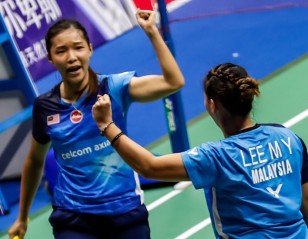
Malaysia Edge Past India – Sudirman Cup ’19 21 May 2019
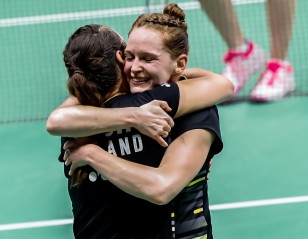
Continental Conquest! – Sudirman Cup ’19 20 May 2019
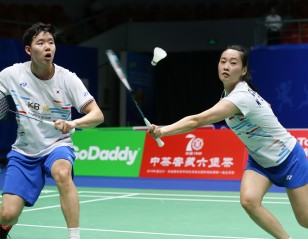
Korea into Quarters – Sudirman Cup ’19 20 May 2019

China Club Stint Powers Malkov – Sudirman Cup ’19 20 May 2019
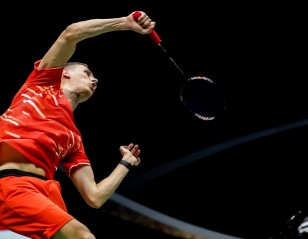
Wake-Up Call for Japan – Sudirman Cup ’19 20 May 2019
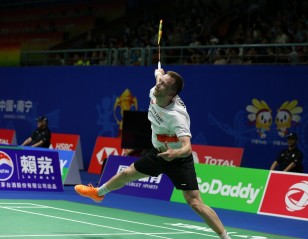
‘Greatest moment ever’ says Greenland – Sudirman Cup ’19 20 May 2019
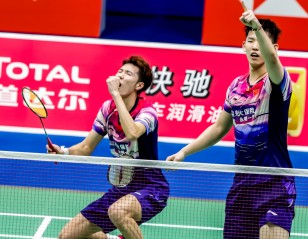
China Brush Off Scare – Sudirman Cup ’19 19 May 2019
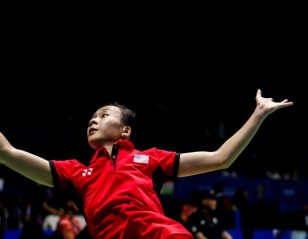
Iris Wang Unable to Resist Badminton’s Lure – Sudirman Cup ’19 19 May 2019
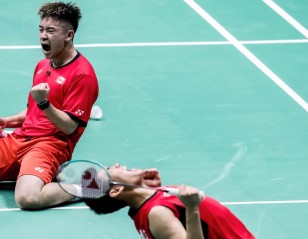
Thrilling Win for Canada – Sudirman Cup ’19 19 May 2019
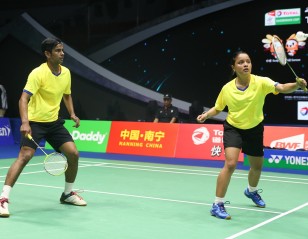
Learning Curve for Nepal – Sudirman Cup ’19 19 May 2019
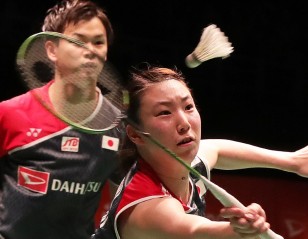
Mixed Doubles at Sudirman Cup – A Form Guide 19 May 2019
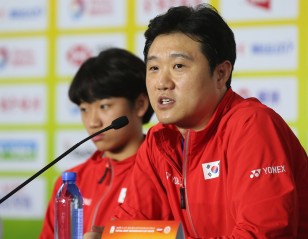
Speaking Their Minds – Sudirman Cup ’19 18 May 2019
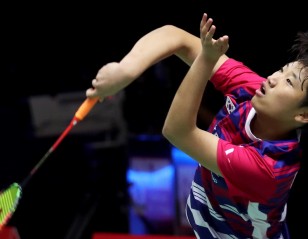
Women’s Singles at Sudirman Cup – A Form Guide 18 May 2019
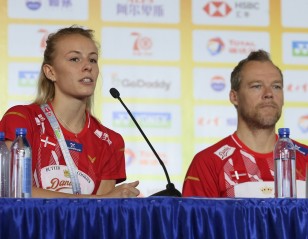
Denmark in Transition Phase – Sudirman Cup ’19 18 May 2019
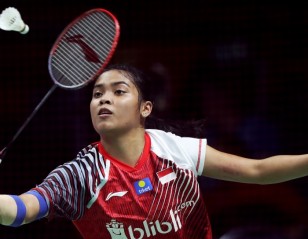
Indonesia Hold the Aces in Group 1B 17 May 2019
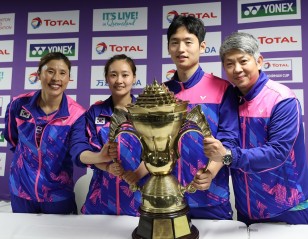
Final Preparations on Sudirman Cup Eve 16 May 2019
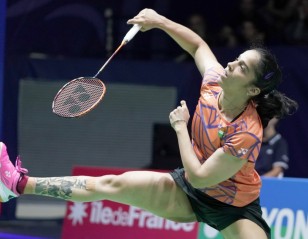
India-Malaysia Duel Likely to Decide Group 1D 15 May 2019
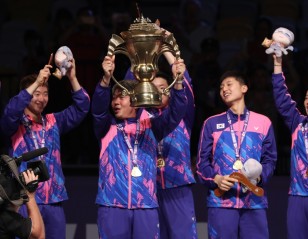
A Twist in the Tale – Sudirman Cup in the 2010s 15 May 2019
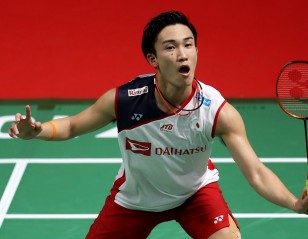
Men’s Singles at Sudirman Cup – A Form Guide 14 May 2019
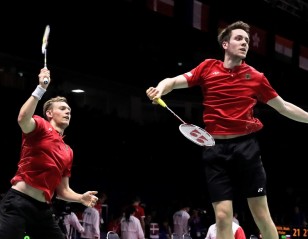
Spotlight On Canada-Germany Clash 11 May 2019
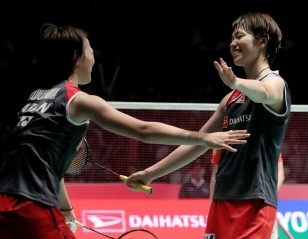
Women’s Doubles at Sudirman Cup – A Form Guide 10 May 2019
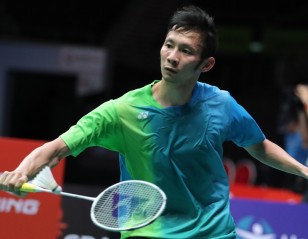
Tight Contest Expected between Netherlands, France 9 May 2019
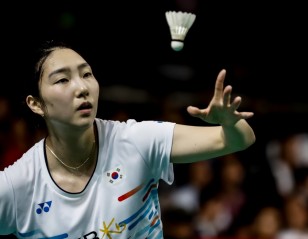
Sung’s Pullout a Setback for Korea in Group 1C 8 May 2019
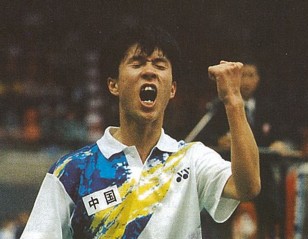
The Clash of Powerhouses – Sudirman Cup in the 90s 7 May 2019
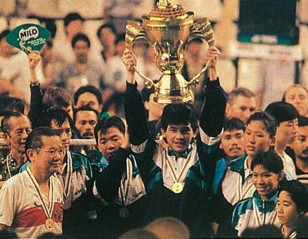
Glory on Home Soil – Sudirman Cup ’89 3 May 2019
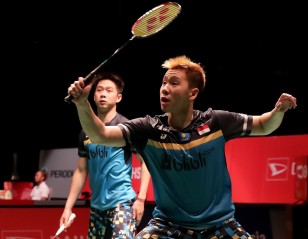
Men’s Doubles at Sudirman Cup – A Form Guide 2 May 2019
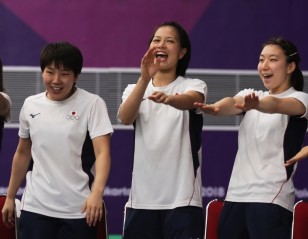
Spotlight on Japan, China – Sudirman Cup ’19 30 April 2019
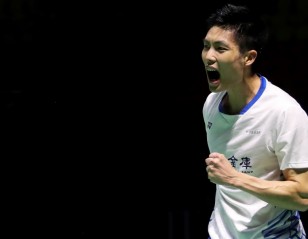
Chinese Taipei Can Go Far – Sudirman Cup ’19 27 April 2019
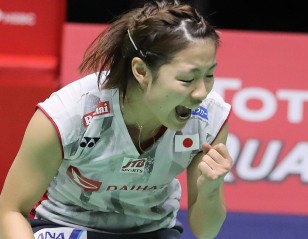
Everybody Wants to Beat Japan, Says Okuhara 26 April 2019
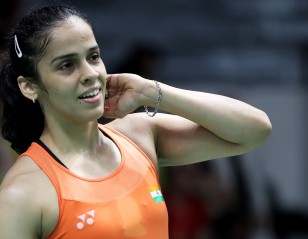
Title Triumph Not Far Away, Says Nehwal 25 April 2019
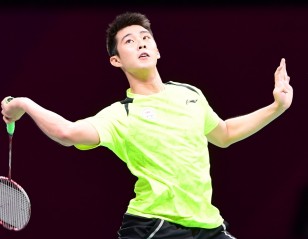
Loh Looks Forward to Team Challenge 24 April 2019
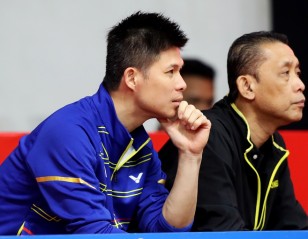
‘Team Spirit and Self-Belief are Important’: Wong Choong Hann 23 April 2019
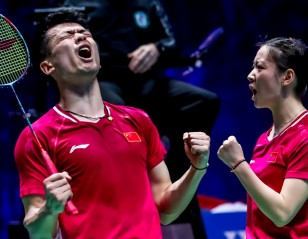
China’s Trump Cards – Zheng & Huang 22 April 2019
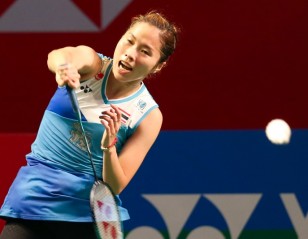
Intanon Optimistic About Thailand’s Chances 21 April 2019
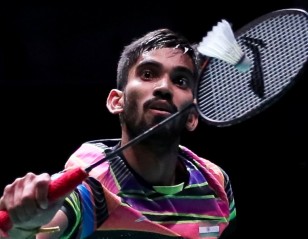
Kidambi Keen to Lead India to Team Glory 20 April 2019
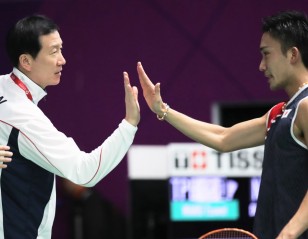
Month-Long Countdown Begins for Sudirman Cup 19 April 2019
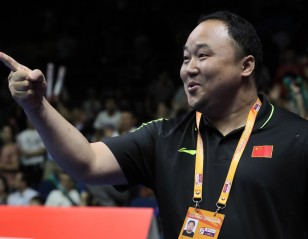
‘Looking to Convert Pressure into Motivation’: Zhang Jun 19 April 2019
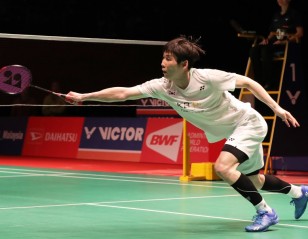
Setback for Korea’s Sudirman Cup Preparations 25 March 2019
Early Test for Hosts China: Sudirman Cup Draw 19 March 2019

Japan Get Top Billing – Sudirman Cup 11 March 2019

Hosts Ready as Sudirman Cup Countdown Begins 20 February 2019
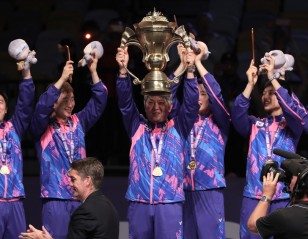
Sudirman Cup Attracts 32 Entries 18 February 2019

GoDaddy Extends Major Events Partnership with BWF 11 February 2019
